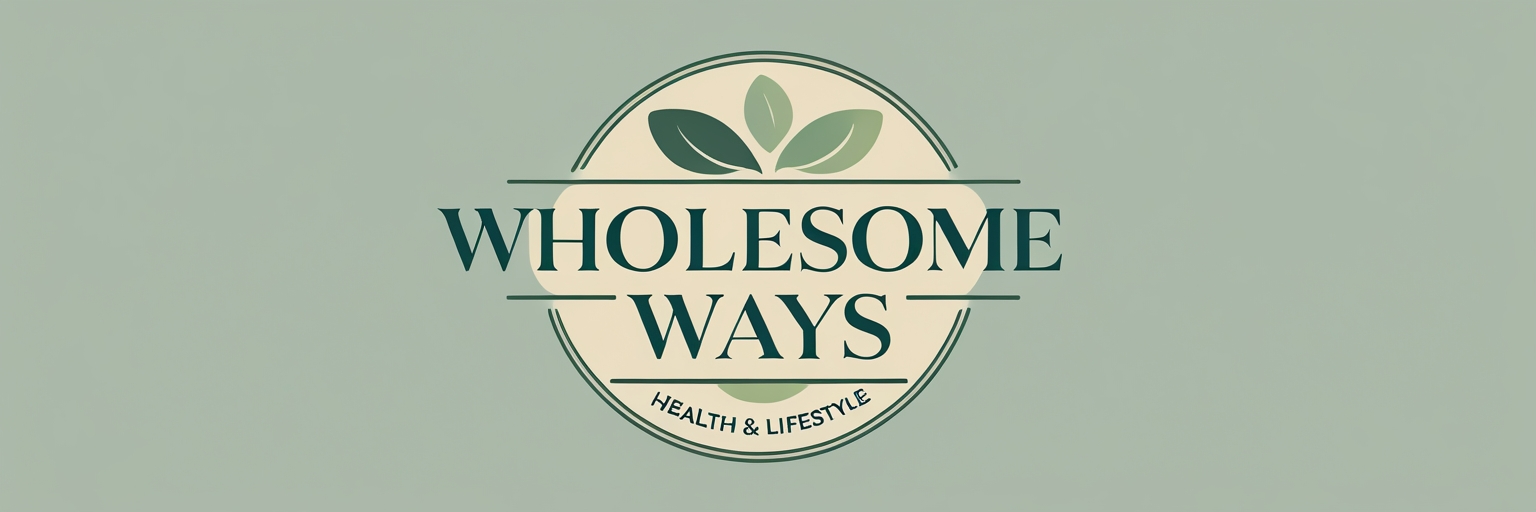Now Reading: Healthy Boundaries: Reduce Stress & Prevent Burnout
-
01
Healthy Boundaries: Reduce Stress & Prevent Burnout
Healthy Boundaries: Reduce Stress & Prevent Burnout

Healthy Boundaries: Your Essential Guide to Reducing Stress, Preventing Burnout & Boosting Well-being
Do you ever feel like you’re constantly running on empty, pulled in a dozen directions, and struggling to keep up with endless demands? Perhaps you nod “yes” to every request, even when your inner voice screams “no,” only to find yourself exhausted and resentful. If this sounds familiar, dear friend, you’re absolutely not alone. In our hyperconnected world, the lines between work and personal life, and between our needs and the needs of others, can easily blur. This constant blurring is a major silent culprit behind the pervasive epidemic of stress and burnout.
But there’s a powerful, often overlooked, solution: setting healthy boundaries. Think of them not as walls to keep people out, but as essential guidelines for your well-being – a vital cornerstone of self-care that protects your mental and emotional health. In this guide, we’ll explore exactly what boundaries are, why they’re non-negotiable for a balanced life, and practical, empathetic steps you can take to reclaim your peace and energy.
Unpacking Stress & Burnout: The Modern Epidemic
Before we dive into solutions, let’s understand the landscape. Why are so many of us feeling overwhelmed?
What is Stress?
Stress is your body’s natural response to any demand. It’s an automatic physical and psychological reaction. While short bursts of stress can be motivating, chronic stress, the kind that lingers and never lets up, can be incredibly damaging. Common symptoms include persistent fatigue, headaches, muscle tension, stomach issues, difficulty concentrating, irritability, and anxiety. The numbers tell a clear story: research indicates that 77% of Americans experience physical symptoms of stress, and 73% experience psychological symptoms. It’s your body’s alarm system ringing constantly, draining your reserves.
What is Burnout?
Burnout, as defined by the World Health Organization (WHO), is a syndrome conceptualized as resulting from chronic workplace stress that has not been successfully managed. It’s more than just being tired; it’s a profound state of physical, emotional, and mental exhaustion, often coupled with cynicism and a reduced sense of accomplishment. Unlike regular stress, which might dissipate after a good night’s sleep or a relaxing weekend, burnout lingers, leaving you feeling helpless, detached, and often questioning your competence and value.
Signs you might be experiencing burnout:
- Chronic physical and mental exhaustion, even after rest.
- Increased negativity or cynicism, especially related to work or responsibilities.
- Reduced motivation, productivity, and overall performance.
- Emotional detachment or a sense of apathy towards things you once cared about.
- Frequent physical aches and pains without a clear medical cause.
- Persistent sleep disturbances (insomnia or excessive sleep).
- Feelings of resentment towards responsibilities, people, or even life itself.
The Hidden Link: How Blurred Boundaries Fuel Stress & Burnout
So, where do boundaries fit in? When you lack clear boundaries, you’re essentially leaving the door open for constant demands on your time, energy, and emotions. This can manifest as over-giving, an inability to say “no” even when you’re overwhelmed, and a feeling of being constantly “on call.” This perpetual state of overcommitment and availability depletes your internal resources, leading to chronic stress and, eventually, the deep-seated exhaustion and cynicism characteristic of burnout. Without boundaries, your well-being becomes an open invitation for depletion.
The Foundation of Well-being: What Are Healthy Boundaries?
Let’s clarify what healthy boundaries truly mean for your well-being.
Defining Healthy Boundaries
Healthy boundaries are the invisible lines that define your personal space, emotions, time, and limits. They are guidelines that communicate what you are, and are not, comfortable with. Importantly, they are not walls meant to isolate you or keep others out. Instead, they are compassionate safeguards that help you preserve your well-being while fostering more authentic, respectful, and meaningful connections. They are an act of self-love that allows for healthier relationships with everyone around you.
Why Boundaries Are Non-Negotiable for Mental Health (Evidence-Based Benefits):
Setting and maintaining boundaries is a powerful act of self-care with profound benefits for your mental and emotional health:
- Significant Stress Reduction: When you honor your limits, you naturally reduce external pressures. Research indicates that individuals with clear boundaries report significantly lower stress levels and higher life satisfaction. This translates directly to reduced anxiety and a greater sense of peace.
- Potent Burnout Prevention: Boundaries are a proactive shield against emotional exhaustion. Studies show that employees with clear work boundaries are 69% less likely to experience workplace burnout. By defining what’s yours and what isn’t, you protect your energy and prevent reaching that point of profound depletion.
- Enhanced Self-Respect & Autonomy: Every time you set a boundary, you honor your own needs and values. This reinforces your self-worth and fosters a greater sense of control and personal autonomy over your life. You’re showing yourself that you matter.
- Improved Relationships: It might seem counterintuitive, but boundaries clarify expectations, reduce misunderstandings, and prevent resentment from building up. They foster mutual respect, leading to more authentic and satisfying connections built on trust, not obligation or unspoken expectations.
- Increased Energy & Focus: By protecting your mental space and time from constant intrusion, boundaries allow you to rest, restore, and focus your energy on what truly matters to you, whether it’s personal passions, important work, or simply quiet reflection.
Recognizing the Red Flags: Signs You Need Stronger Boundaries
Sometimes, the need for boundaries becomes apparent only when we’re already feeling the strain. Here are some common signs that you might benefit from stronger personal limits:
- You feel consistently drained or exhausted after social interactions, even with people you care about.
- You have immense difficulty saying “no” to requests, even when you’re overwhelmed, leading to overwhelming guilt if you do.
- You frequently feel resentment building towards demands placed upon you, or towards people who seem to always ask for something.
- You regularly find yourself sacrificing your own needs, plans, or well-being to please others.
- You experience anxiety or dread when thinking about certain relationships, social events, or professional obligations.
- You feel taken advantage of, invisible, or that your opinions don’t matter in certain relationships.
- Your stress levels spike significantly the moment you check your emails or messages, feeling a constant pressure to respond immediately.
Types of Boundaries to Empower Your Life
Boundaries aren’t one-size-fits-all. They encompass various aspects of our lives:
- Physical Boundaries: This involves your personal space, comfort with touch, and privacy needs. It’s about feeling safe and respected in your own body and environment. For example, your comfort with hugs, or needing personal space while working.
- Emotional Boundaries: Protecting your feelings, not taking on others’ emotions as your own, and limiting emotional oversharing (from yourself or others). It’s about recognizing where your emotions end and theirs begin, and not feeling responsible for fixing everyone’s feelings.
- Time Boundaries: Honoring how you spend your time and energy, protecting personal time for rest, self-care, and leisure. This includes respecting deadlines and commitments, but also knowing when to say “no” to new ones that would overload your schedule.
- Material Boundaries: Pertaining to your possessions and money. It’s about clear expectations around borrowing, lending, and respecting ownership – for example, not having to lend money you can’t afford to lose, or ensuring your belongings are treated with care.
- Mental Boundaries: Safeguarding your thoughts, values, opinions, and beliefs. This means being able to respectfully disagree, hold your own perspective, and protect your intellectual space from invalidation, unsolicited advice, or overwhelming negative discussions.
- Digital Boundaries: Managing your online presence, accessibility, notifications, and designated tech-free times and spaces. This is increasingly vital in our hyperconnected world, allowing you to control digital intrusion.
Practical Steps to Set Healthy Boundaries
Ready to start creating your shield against stress and burnout? Here’s a compassionate, step-by-step guide to help you begin:
Step 1: Self-Awareness – Identify Your Limits
This is where your journey begins. Take a moment to truly pay attention to your body’s signals of discomfort, tension, or fatigue. Which situations or requests leave you feeling drained, resentful, or anxious? What are your core values and priorities? What truly energizes you? Understanding these inner cues is crucial for knowing where your boundaries need to be drawn. Journaling can be a wonderful tool for this self-reflection.
Step 2: Start Small & Build Momentum
You don’t need to overhaul your entire life overnight. That can feel overwhelming! Instead, begin with manageable, low-stakes situations to build your confidence. Perhaps it’s committing to taking a full lunch break every day, or saying “no” to a casual social invitation you’re not excited about. Each small success builds momentum and reinforces your belief in your ability to protect yourself.
Step 3: Communicate Clearly & Directly (The “I” Statement Power)
When you’re ready to voice a boundary, clarity is key. Use “I” statements to express your needs and feelings without blaming or accusing others. This keeps the focus on your experience, which is something no one can argue with. Be specific, concise, and polite. Avoid over-explaining or apologizing excessively, as this can undermine your message and make it seem like your boundary is up for negotiation.
- For Time/Availability: Instead of, “You always keep me late,” try: “I need to leave by 5 PM today to make an important appointment.” Or, “I’m not available for calls after 7 PM.”
- For Emotional Energy: Instead of, “You’re always dumping your problems on me,” try: “I care about you, and I want to listen, but I’m feeling a bit overwhelmed right now and can’t take on more emotional weight. Can we revisit this later, or would you like me to help you find other support?”
- For Unsolicited Advice/Opinions: Instead of, “Stop telling me what to do,” try: “I appreciate your perspective, but I’m looking for a listening ear, not advice, right now.” Or, “I’ve got this handled, thank you.”
Step 4: Mastering the Art of “No” (Gracefully)
Learning to say “no” is perhaps the most empowering boundary-setting skill. Reframe “no” not as rejection of others, but as an act of self-respect and relationship preservation. When you say “no” to something that depletes you, you’re saying “yes” to your well-being, your energy, and your true priorities. Here are some empathetic phrases to help you:
- “I appreciate you thinking of me, but I can’t take that on right now.”
- “My plate is full at the moment, but thank you for the offer.”
- “I’m not available at that time, but I hope you have fun!”
- “I need to protect my evenings for personal time, so I won’t be checking emails after 6 PM.”
- “That doesn’t align with my current priorities, but thank you for considering me.”
- “I’m not the best person for that, but I might be able to help you find someone who is.”
Step 5: Be Consistent
Boundaries aren’t a one-time declaration; they require consistent reinforcement to be effective. Inconsistency sends mixed messages and can undermine your efforts, making it harder for others to understand and respect your limits. Stick to your stated limits gently but firmly over time. Think of it as gently training those around you how to best interact with you for the benefit of everyone.
Step 6: Prepare for Resistance & Respond with Calm Assertiveness
It’s common for others to push back, especially if they’re used to your previous lack of boundaries. People may test your limits, express disappointment, or even try to guilt-trip you. Your strategy? Calmly and simply restate your boundary without getting drawn into an argument or lengthy explanation. You might use the “broken record” technique. Remember, their reaction isn’t your responsibility; your responsibility is to protect your peace. Seek support from trusted friends or a professional if navigating this resistance feels overwhelming.
Applying Boundaries in Key Life Areas
Boundaries are relevant in every facet of your life. Let’s look at some key areas and practical ways to implement them:
Workplace Boundaries to Combat Professional Burnout
Your work environment is a prime place for boundary setting to protect your energy and focus.
- Defined Work Hours: Make a conscious effort to stick to a specific schedule. This means avoiding checking emails or taking calls after hours, unless absolutely critical. Communicate these hours. “I’ll be offline after 5 PM and will respond to emails tomorrow morning.”
- Managing Communication: Set expectations for response times. You don’t need to be instantly available. Perhaps centralize communication channels to reduce scattered notifications. “I check messages twice a day, at 10 AM and 3 PM.”
- Delegating & Saying No to Overload: Politely decline tasks that genuinely exceed your capacity or aren’t within your job description. Clarify responsibilities and learn to delegate when appropriate. “My capacity for new projects is full for this quarter, but I can help you find someone who might have bandwidth.”
- Protecting Personal Time: Take your lunch breaks away from your desk. Use your paid time off (PTO) without guilt. These are crucial for your mental recharge and preventing burnout. “I’m taking my lunch break now and will be back at 1 PM.”
Evidence consistently shows that employees with clear workplace boundaries experience dramatically lower rates of burnout and higher job satisfaction.
Nurturing Personal Relationships with Boundaries
Healthy boundaries deepen relationships by fostering respect and understanding.
- For family and friends: Establish limits around privacy, time for self-care, financial expectations (e.g., lending money), and communication styles (e.g., no yelling, no intrusive questions).
- “I love spending time with you, but I need some quiet time to myself on Sundays to recharge.” (Time/Energy Boundary)
- “I’m not comfortable discussing my finances right now.” (Material/Privacy Boundary)
- “I can listen to your concerns, but I’m not able to offer advice on that situation.” (Emotional Boundary)
- “I need us to speak calmly; I can’t continue this conversation if there’s yelling.” (Communication Style Boundary)
- Address people-pleasing and codependent patterns: Setting boundaries means focusing on meeting your own emotional needs first, rather than constantly sacrificing for others. This is an act of self-love, not selfishness.
- By setting these clear expectations, you foster more authentic, less resentful connections built on mutual respect and understanding.
Safeguarding Your Sanity with Digital Boundaries
In our “always-on” world, digital boundaries are vital for mental peace.
- Designate “tech-free” times and spaces: This could mean no phones at the dinner table, no screens in the bedroom after a certain hour, or a “digital detox” day each week. “We’re going to put our phones away during dinner so we can connect properly.”
- Implement social media usage limits: Use app timers, or schedule specific times for checking social media rather than constant scrolling. “I only check social media for 15 minutes in the morning and evening.”
- Manage notifications: Turn off non-essential notifications on your phone and computer. You are in control, not your device or an app. Customize them so only truly urgent alerts come through.
- Separate work and personal digital spaces: If possible, use different devices or accounts for work and personal use to create a clear mental separation. This helps you “switch off” more effectively.
Studies suggest that consistent digital boundaries can significantly reduce reported stress levels, improve sleep quality, and boost overall well-being.
Overcoming Common Roadblocks (Empathetic Approach)
Setting boundaries is a journey, and you’ll likely encounter some bumps along the way. Be kind to yourself through this process; it’s a learning curve for everyone involved.
The Guilt Factor
For many of us, especially natural caregivers and people-pleasers, guilt is a huge hurdle. Please know that this feeling is normal and stems from a good place – it means you care about others, which is a beautiful quality! However, remember that healthy boundaries aren’t selfish; they are acts of self-preservation that ultimately benefit *all* your relationships. When you’re well, you can show up more fully for those you care about. Practicing self-compassion can significantly reduce boundary-related guilt, allowing you to move forward with kindness towards yourself.
Fear of Rejection or Conflict
The thought of someone being upset with us can be paralyzing. Yet, authentic relationships thrive on honesty and respect, not constant accommodation. While initial reactions might be surprise or even disappointment, those who truly value you will adjust and respect your boundaries, even if it takes them a little time. Your worth is not dependent on constantly pleasing others. True connection is built on genuine interactions, not on you always saying “yes.”
Inconsistency & Slipping Back
It’s a process, not a one-time fix! There will be days when you perfectly uphold a boundary, and days when you might slip back into old habits. This is human. Don’t beat yourself up. Celebrate your small wins, and treat any setbacks as valuable learning opportunities. Gently redirect yourself, learn what caused the slip, and try again. Each attempt, successful or not, is a step forward in strengthening your resolve.
The Lasting Impact: Long-Term Benefits of Strong Boundaries
Embracing healthy boundaries is an investment in your future self. The long-term rewards are immense, transforming not just your relationships but your entire life experience:
- Reduced Mental Health Challenges: Consistent boundaries contribute to lower rates of anxiety disorders, depressive episodes, and chronic stress.
- Increased Life & Relationship Satisfaction: You’ll experience more fulfilling connections built on mutual respect, and a greater overall sense of contentment and peace in your daily life.
- Greater Personal Autonomy & Self-Esteem: You’ll have a stronger sense of self, feel more in control of your life choices, and foster deep self-respect.
- Improved Work-Life Balance & Career Success: By protecting your energy and focus, you’ll have more clarity for your professional goals and cultivate a healthier, more sustainable relationship with your work.
- Enhanced Resilience: You’ll be better equipped to handle life’s challenges without becoming overwhelmed or depleted, bouncing back with greater strength.
Your Journey to a More Balanced and Resilient Life
Setting healthy boundaries is not about building walls; it’s about drawing clear, compassionate lines that protect your invaluable mental and emotional resources. It’s a powerful act of self-care, a declaration that your well-being matters, and a vital tool for reducing stress, preventing burnout, and fostering a life filled with authentic connection and sustainable energy.
What’s one small boundary you can set this week to protect your peace? Perhaps it’s saying “no” to an extra task, silencing notifications during dinner, or dedicating 15 minutes just for yourself. Remember, even the smallest step forward is a powerful act of self-care, a loving gesture to yourself. You deserve to live a life that feels balanced, fulfilling, and free from constant overwhelm.
If navigating boundary setting feels overwhelming, please know you don’t have to do it alone. Consider reaching out to a trusted therapist or counselor for personalized support, or explore books and resources on boundary setting. Your well-being is worth protecting, and taking this step is a profound gift to yourself.




















